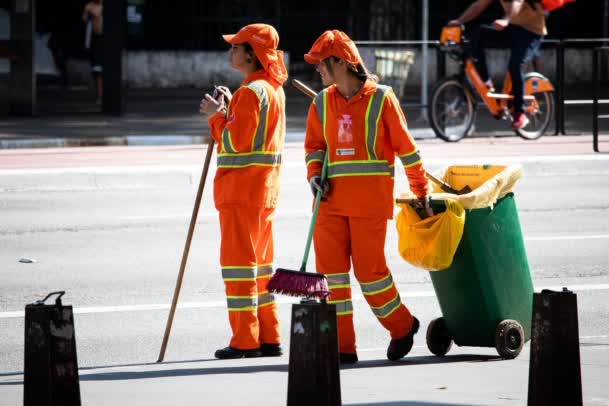- life
- community
- lamberti transforma
- Diversity and Inclusion
- education
Gendering inequality and Covid-19 pandemic
The socio-economic context in São Paulo area that has determined the focus of Lamberti Transforma Project.
A situation of vulnerability

Since March 2020, Aventura de Construir (the ONG which organizes "Lamberti transforma" project) has been operating remotely due to the Covid-19 pandemic. To this end, they adopted the strategy of making individual calls to raise awareness of the pandemic, seeking to understand the situation of vulnerability and provide guidance on how to continue working in this scenario.
In April 2020, 46% of the contacted micro-entrepreneurs had the resources to keep their way of life for 3 months and 23% who could not provide for their families for more than 15 days with the budget available at that time.
To face this scenario AdC had to modify their strategy of intervention, taking into account the reality of each beneficiary, intensifying the activity of technical support through online advice and training and looking for new fund opportunities.
The AdC team contacted the Food Bank and in December 2020, there were more than 30 entrepreneurs involved in fundraising initiatives, reaching more than R$ 200,000.00. With vouchers made available by the Food Bank, 500 families were supported and 8 AdC microentrepreneurs acted as multipliers in their neighborhoods, identifying the public in social vulnerability, systematizing spreadsheets, making photographic records and finally, performing the distribution of the vouchers.
Women with children are loosing their jobs

That was the context at the very moment we have started to design the Lamberti Transforma Project.
What was even worse and clear was that there is an evident gender inequality in the Brazilian world of work that has seen an acceleration due to the Covid 19 pandemic.
According to the Associated Press 6,5 Million women had left the job market in the last half of March.
The Covid-19 pandemic above the general loss of jobs has increased the difference between men and women: even more with less of 50% of entire women population excluded by the brazilian workforce.
The survey “Covid-19's Labor Market and Pandemic: Expanding Existing Inequalities?” conducted in July by the Institute for Applied Economic Research (Ipea) points out that the participation rate of women with children under 10 years of age in the labor market dropped from 58.3% in the second quarter of 2019 to 50, 6% in the same period this year. The average participation of women in the labor market, in turn, was 46.3% between April and June 2020. This rate represents the percentage of women who are working or looking for a job, divided by the total participation of professionals in the market with 14 years or older.
"Lamberti Transforma" Project focuses on micro-entrepeneurial women

A large number of women had to give up their professional activities to care for their children, who stopped attending day care centers and schools. It was a leap back in the history of the job market to 1990.
Many women are heads of the family, they have no husband and, neither, help to raise their children.
Given this scenario, "Lamberti Trasforma" project focuses on giving guidance to women who can perform entrepreneurial activities based on the use of technology and the digital universe in their own homes, while caring for their children.
